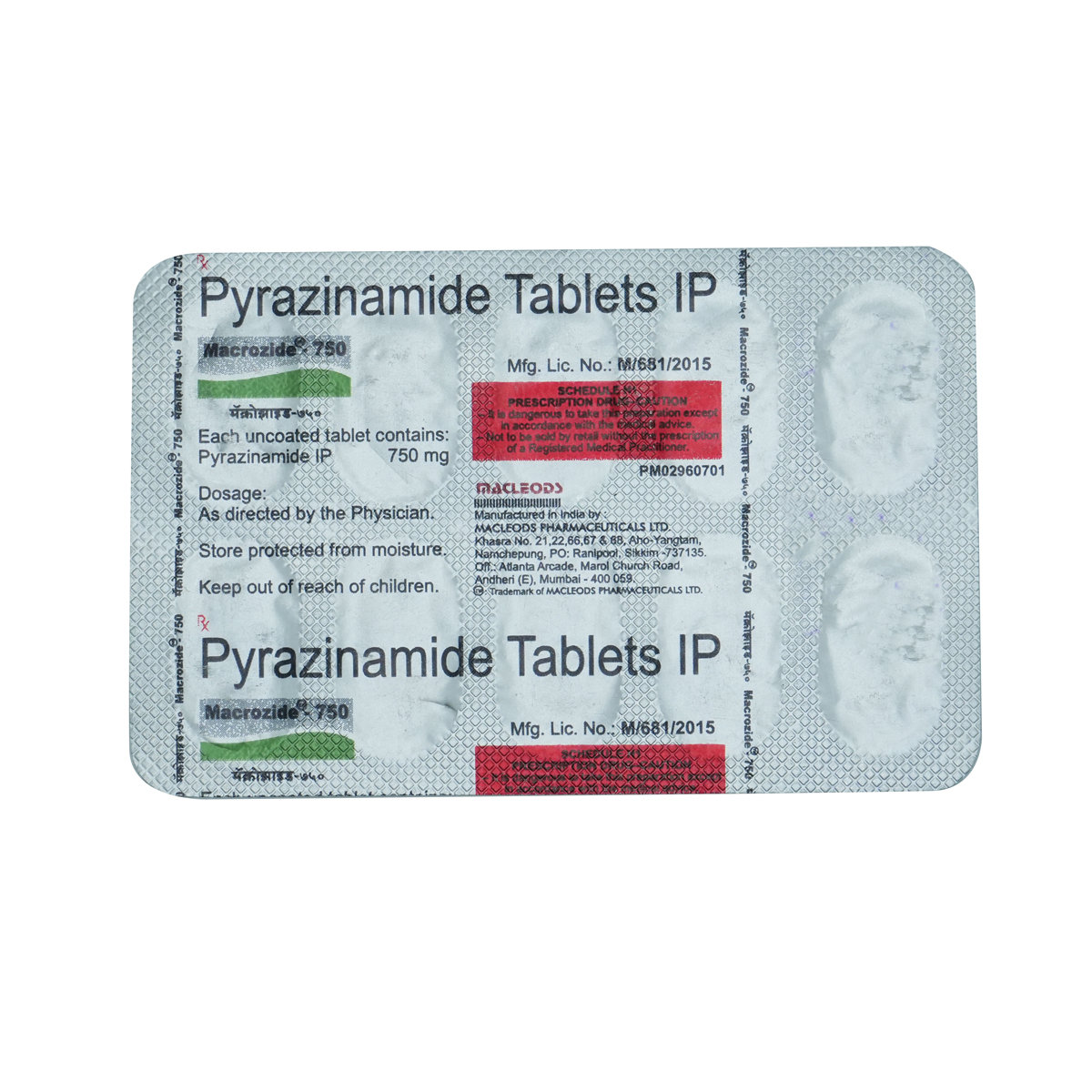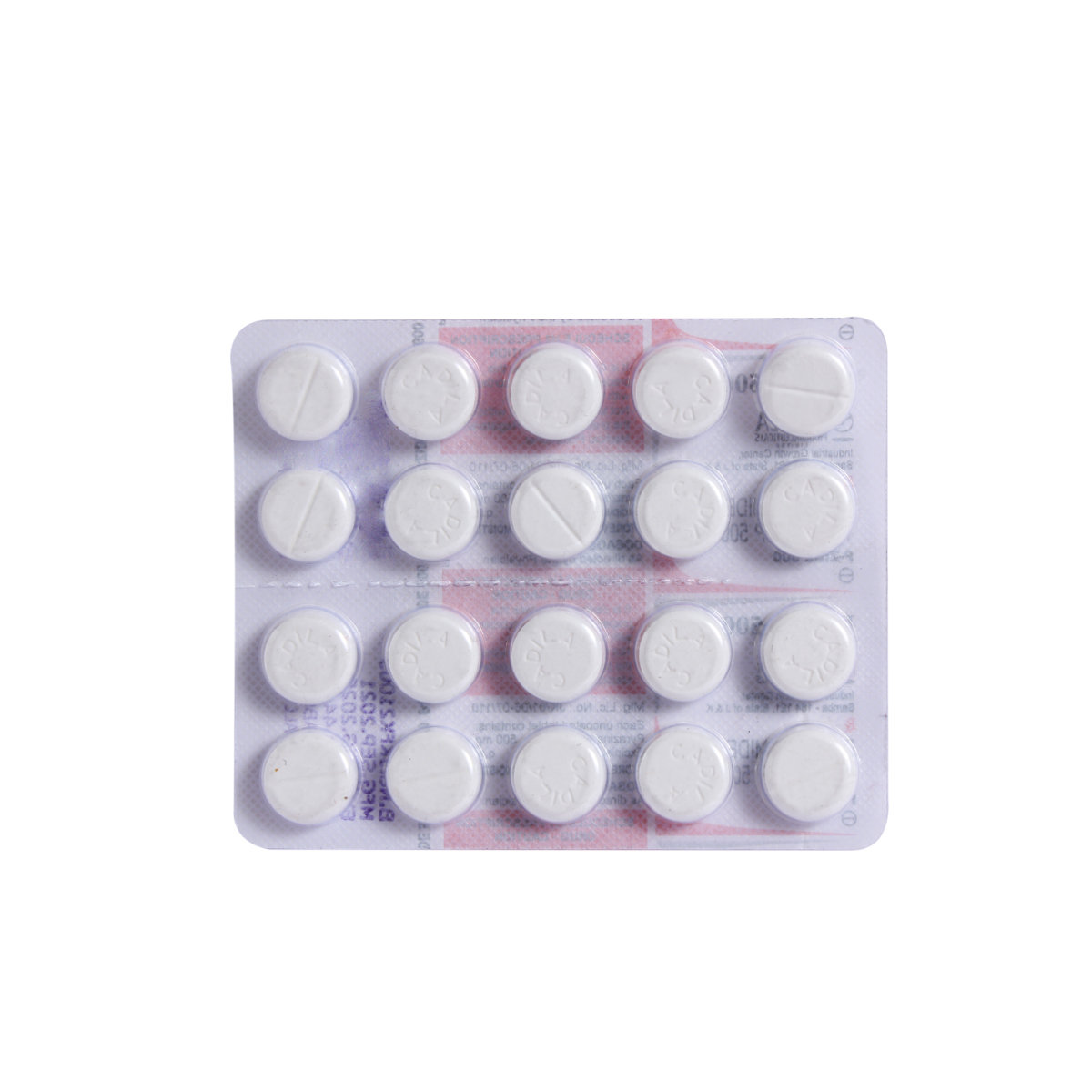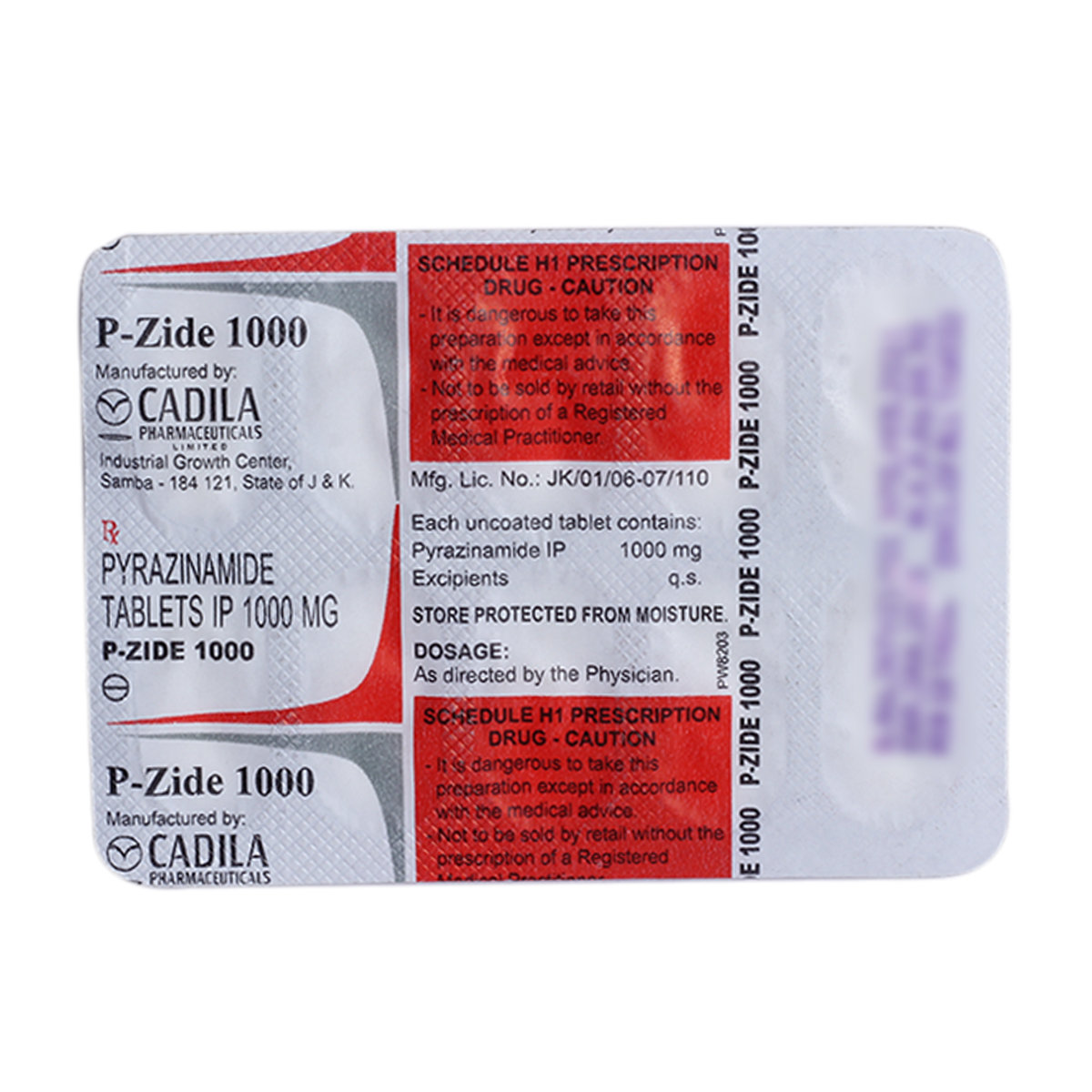Pyrazinamide
About Pyrazinamide
Pyrazinamide is used to treat and prevent tuberculosis. Tuberculosis is an infectious disease that mainly affects the lungs, but it can also spread to other body parts such as kidneys, brain, spine and bone marrow. Pyrazinamide does not work against infections caused by the virus, such as the common cold and flu.
Pyrazinamide contains 'Pyrazinamide'. Pyrazinamide is a chemically synthesised bacteriocidal antibiotic. It converts a special enzyme to an active form that inhibits the synthesis of fatty acids; this disrupts the cell membrane and disables energy production necessary for the survival of the TB bacteria.
Your doctor will decide the dose and duration based on the severity of your disease. Common side effects of Pyrazinamide include muscle/joint pain, nausea, vomiting and loss of appetite. These side effects are not familiar to everyone and vary individually. If you notice any side effects that are not manageable, please consult your doctor.
Let your doctor know if you use any prescription and non-prescription medications you are taking, including other vitamins, before starting Pyrazinamide. Please tell your doctor if you are allergic to Pyrazinamide or its components. Inform your doctor beforehand if you have a history of liver or kidney diseases, diabetes, gout, high uric acid level in the blood, alcohol use and are undergoing dialysis. It is essential to let your doctor know if you are pregnant, planning to conceive or are a breastfeeding mother. Avoid consuming alcohol along with Pyrazinamide as it might lead to liver problems.
Uses of Pyrazinamide
Medicinal Benefits
Pyrazinamide contains 'Pyrazinamide', which is used to treat and prevent tuberculosis. Pyrazinamide is a chemically synthesised bacteriocidal antibiotic. It converts a special enzyme to an active form that inhibits the synthesis of fatty acids; this disrupts the cell membrane and disables energy production necessary to survive the TB bacteria. It is usually given in alone or combined with other antitubercular agents to treat tuberculosis.
Directions for Use
- Take Pyrazinamide with or without food or as advised by a doctor.
- Recommended to take the medicine once daily, either in the morning or in the evening or as advised by your doctor.
- Swallow the medicine as a whole with a glass of water.
- Do not crush, break, or chew it.
Storage
Side Effects of Pyrazinamide
Muscle/joint pain
Nausea
Vomiting
Loss of appetite
Hepatitis, liver dysfunction
Drug Warnings
Brief your medical history to the doctor if you have any liver or kidney diseases, diabetes, gout, high uric acid level in the blood, lactose intolerance, alcohol use and are undergoing dialysis treatment before starting Pyrazinamide. Let your doctor know if you are undergoing any vaccinations with live bacterial vaccines (like typhoid vaccine) since Pyrazinamide may affect vaccine's activity. Please consult your doctor know if you are pregnant, planning to conceive or are a breastfeeding mother before starting Pyrazinamide. Avoid consuming alcohol along with Pyrazinamide as it might lead to liver problems. Store Pyrazinamide below 25°C away from direct sunlight.
Drug Interactions
Drug-Drug Interaction: Pyrazinamide may interact with gout medicine (probenecid, sulfinpyrazone) and oral contraceptives.
Drug-Food Interaction: Do not consume alcohol while taking Pyrazinamide as it could lead to increased liver damage.
Drug-Disease Interaction: Before using Pyrazinamide, let your doctor know if you have any liver or kidney diseases, diabetes, gout, high uric acid level in the blood, lactose intolerance, alcohol use and undergoing dialysis treatment.
Drug-Drug Interactions Checker List:
Safety Advice

Alcohol
unsafeYou are recommended to avoid alcohol consumption while taking Pyrazinamide. Alcohol intake, along with Pyrazinamide, may cause increased liver damage. Please consult your doctor for more information.

Pregnancy
cautionPyrazinamide should be used with caution during pregnancy. Please consult your doctor before taking Pyrazinamide if you are pregnant or planning to conceive.

Breast Feeding
cautionPyrazinamide is not recommended for use during breastfeeding since it is excreted into the breast milk and may harm a nursing baby. Please consult your doctor if you are a breastfeeding mother.

Driving
cautionIt is not known if Pyrazinamide alters the ability to drive. Do not drive if you experience any symptoms that affect your ability to drive or operate machinery.

Liver
cautionPyrazinamide is not recommended in patients with severe liver damage. Please consult your doctor since Pyrazinamide should be used with caution in patients with liver impairment/liver disease. Regular monitoring of the liver with liver function tests is also advised.

Kidney
cautionPlease consult your doctor since Pyrazinamide should be used with caution in patients with kidney impairment/kidney disease. Your doctor may adjust the dosage in case of renal dysfunction.

Children
cautionPyrazinamide is recommended in children below 12 years of age only after doctor's advice.
Habit Forming
Diet & Lifestyle Advise
Pineapple juice might help soothe the symptoms of cough and cold. It also has anti-inflammatory and mucolytic properties.
Foods rich in vitamin C, such as kiwi, broccoli and bell pepper, help improve the immune system.
Avoid processed and fried foods.
Warm ginger tea or warm soup can help in providing relief from the cough.
Avoid foods and drinks, such as cured meat, matured cheese, soya, tuna, salmon, mackerel, wine and beer.
Quit smoking and avoid alcohol consumption.
Special Advise
Let your doctor know that you are taking Pyrazinamide if you are undergoing any medical tests.
Your doctor may advise liver enzymes and uric acid levels tests before you start treatment to make sure you can safely take Pyrazinamide.
It is advised to undergo liver functioning tests to keep a check on your liver function.
Use a reliable contraceptive method (such as condoms or a diaphragm) to prevent pregnancy while you are taking Pyrazinamide as it may make hormonal contraceptives such as the pill less effective.
Patients Concern
Disease/Condition Glossary
Tuberculosis (TB): Tuberculosis is an infectious disease that affects the lungs, but it could also spread to other body parts such as kidneys, brain, spine and bone marrow. Tuberculosis is caused by a bacteria named Mycobacterium tuberculosis. It is a contagious disease which can spread to others through small droplets released into the air by a person suffering from tuberculosis. Symptoms include a cough that lasts for a few weeks, pain while coughing or normal breathing, unexplained fatigue, fever, night sweats, and loss of appetite and weight. People who smoke or consume alcohol, and people diagnosed with HIV and immune system problems are more likely at risk of developing active TB.
FAQs
Pyrazinamide is used to treat and prevent tuberculosis.
Pyrazinamide contains 'Pyrazinamide.' It is bactericidal and works by stopping the growth of Mycobacterium tuberculosis, a bacteria that causes tuberculosis.
Pyrazinamide is not recommended for use in the medical history of liver or kidney diseases, diabetes, gout, high uric acid level in the blood, alcohol use and undergoing dialysis treatment. Please let your doctor know if you have any other medical problems before starting Pyrazinamide.
Pyrazinamide can affect the live vaccines like typhoid vaccine and decrease its effectiveness. Please consult a doctor before you start Pyrazinamide if you are undergoing any vaccinations.
It is advised to take Pyrazinamide 30 minutes before food or 2 hours after food. Please consult your doctor for more information.
Pyrazinamide gets converted in the body to Pyrazinoic acid that blocks the excretion of urates (salt form of uric acid) by the kidneys. Increased blood levels of uric acid (hyperuricemia) causes pain, swelling, redness and stiffness in joints (gout). Hence, Pyrazinamide should be avoided if you have a history of gout.
Pyrazinamide is an antibiotic that belongs to the group of anti-tuberculosis (TB) drugs. It is used for the treatment of tuberculosis which is an infectious disease that mainly affects lungs but can also impact other parts of the body.
Yes, Pyrazinamide is bactericidal. It works by inhibiting the growth of Mycobacterium tuberculosis, the bacteria that is responsible for causing tuberculosis.
Pyrazinamide causes hyperuricemia and gout by inhibiting the renal excretion of uric acid, which can lead to the precipitation or worsening of gout. It should be used with caution in individuals with hyperuricemia or a history of gout.
The side effects of Pyrazinamide include nausea, vomiting, muscle/joint pain, nausea and loss of appetite. Consult the doctor if any of these symptoms persist or worsen.










